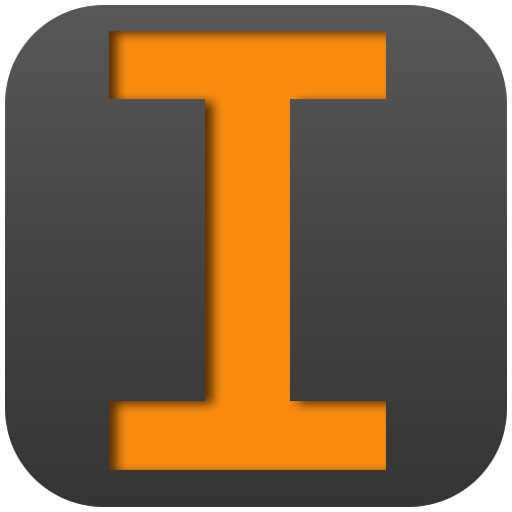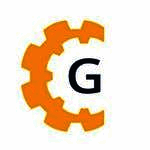Description

IvyBackup

Pyxis
Comprehensive Overview: IvyBackup vs Pyxis
IvyBackup and Pyxis are data backup and management solutions designed to cater to different needs and markets. Here's a comprehensive overview of each:
IvyBackup
a) Primary Functions and Target Markets:
-
Primary Functions:
- IvyBackup is a data backup software mainly for Windows systems. It offers features like automated scheduling, incremental and differential backups, and data compression. The software is designed to handle file-level and system-level backups efficiently.
- It supports several storage options, including local drives, network storage, and cloud services, ensuring flexibility for users in choosing backup destinations.
- IvyBackup provides encryption for secure data storage and transfer, along with features that aid in easy recovery and restoration of data.
-
Target Markets:
- IvyBackup is targeted primarily at individual users, small businesses, and IT professionals looking for a cost-effective and reliable backup solution.
- The ease of use makes it an appealing option for non-technical users who require straightforward backup solutions without complex configurations.
b) Market Share and User Base:
- IvyBackup, being a specific niche product, typically holds a modest market share compared to major players like Acronis, Carbonite, and Backblaze. It has a dedicated user base, particularly among small business owners and home users seeking simplicity and cost-effectiveness.
- The software's reach is generally regional, focusing on markets where Windows desktop systems are prevalent.
c) Key Differentiating Factors:
- Offers a user-friendly interface focused on ease of use and simple backup management.
- Provides a free trial version, which helps in onboarding individual users who want to evaluate the software's capabilities before committing financially.
- Competitive pricing aimed at small businesses and individual users, focusing on cost-effectiveness without compromising essential backup features.
Pyxis
a) Primary Functions and Target Markets:
-
Primary Functions:
- Pyxis is a more comprehensive data management and backup solution, often including features like wide-ranging compatibility with various operating systems and enterprises' IT environments, robust disaster recovery options, and extensive cloud integration.
- Its functionality often extends to include data deduplication, replication, and integration with multiple cloud platforms, making it a versatile solution.
-
Target Markets:
- Pyxis is usually aimed at mid-to-large enterprises, offering solutions tailored to more complex and demanding IT environments.
- Industry sectors like finance, healthcare, and large-scale retail that require stringent data management, compliance, and security standards are a typical focus for Pyxis.
b) Market Share and User Base:
- Pyxis, being marketed towards larger and more resource-intensive clients, competes with enterprise-level backup solutions such as Veeam, Commvault, and Veritas.
- It commands a sizable share within its target niche, largely due to its robust feature set that caters to the sophisticated needs of large enterprises.
c) Key Differentiating Factors:
- Extensive enterprise features, including scalability to accommodate large amounts of data across diverse storage environments.
- Strong emphasis on data security and compliance, often providing features that help meet regulatory requirements for data protection.
- Ability to integrate seamlessly with complex IT infrastructures, offering comprehensive support and services that address specific enterprise needs.
Conclusion
While IvyBackup primarily serves individual users and small businesses with a focus on simplicity and cost-effectiveness, Pyxis targets larger enterprises, emphasizing feature-rich capabilities and integration into complex IT environments. The two products cater to distinct market needs, with IvyBackup offering an easy, straightforward solution and Pyxis delivering a scalable, robust enterprise-level service. Their market shares reflect these focuses, with Pyxis having a stronger presence in the enterprise backup sector and IvyBackup being favored among smaller scale users.
Contact Info

Year founded :
Not Available
Not Available
Not Available
Not Available
Not Available

Year founded :
Not Available
Not Available
Not Available
Singapore
Not Available
Feature Similarity Breakdown: IvyBackup, Pyxis
IvyBackup and Pyxis are both backup solutions, but they may cater to slightly different user needs or environments. Here’s a feature similarity breakdown:
a) Core Features in Common:
-
Data Backup: Both IvyBackup and Pyxis offer data backup capabilities, allowing users to create copies of their data to prevent loss.
-
File Compression: They typically include file compression features to save space and make backups more efficient.
-
Scheduling: Both solutions provide the ability to schedule backups at specific times or intervals, automating the backup process to ensure regular data protection.
-
Encryption: Security features such as encryption are common, ensuring that backed-up data remains secure and inaccessible to unauthorized users.
-
Incremental Backups: These tools often support incremental backups, where only changes since the last backup are saved, optimizing storage and speed.
-
Restore Options: Both provide restore functionalities to recover data from backups easily.
b) User Interface Comparison:
-
IvyBackup:
- Generally features a clean, straightforward interface that's user-friendly, catering to both beginners and more advanced users.
- Emphasizes simplicity with clear, intuitive navigation, and easy access to backup options and settings.
-
Pyxis:
- May offer a more modern interface with additional customization options, depending on the target audience and technology behind it.
- Could be designed to integrate seamlessly with other systems, offering a flexible UI adaptable to various user needs.
Both interfaces aim to provide ease of use, but they might differ in visual style, level of customization, and integration options.
c) Unique Features:
- IvyBackup:
- May have specialized features like cloud integration with specific providers, enhanced reporting tools, or unique archival options.
- Possible focus on personal or small business environments with specific, targeted features for those users.
- Pyxis:
- If designed for larger businesses or specific industries, Pyxis might offer enterprise-level capabilities such as advanced analytics, integration with enterprise software (e.g., databases, ERPs), and compliance support.
- Could include unique automation features or AI-driven insights to optimize backup processes and data protection strategies.
To provide a comprehensive comparison, it’s essential to consult the latest software documentation or vendor information, as product features and interfaces evolve over time with updates and new releases.
Features

Not Available

Not Available
Best Fit Use Cases: IvyBackup, Pyxis
IvyBackup and Pyxis cater to different needs and preferences when it comes to data backup solutions, and understanding their best-fit use cases can help businesses select the right tool for their requirements.
IvyBackup
a) Best Choice for Types of Businesses or Projects:
-
Small to Medium-Sized Enterprises (SMEs):
- Ease of Use: IvyBackup is designed with an intuitive interface, making it suitable for SMEs that might not have dedicated IT support but still require reliable data backup solutions.
- Cost-Effectiveness: Smaller businesses can benefit from IvyBackup’s affordability, ensuring data protection without significant financial investment.
-
Freelancers and Independent Professionals:
- Personal Projects: Individuals needing to back up personal data or projects, such as photographers, writers, or designers, can find IvyBackup easy to set up and maintain.
- Scalability: As freelancers grow their data storage needs, IvyBackup can scale with them without becoming overly complex or costly.
-
Remote and Small Office Setups:
- Flexibility and Portability: With remote work becoming more common, IvyBackup’s flexibility makes it ideal for users needing to back up data from multiple locations or devices.
d) Cater to Industry Verticals or Company Sizes:
- Technology and Creative Industries: Firms that deal with large files and creative content can benefit from quick data backup and restoration provided by IvyBackup, ensuring minimal downtime.
- Educational Institutions: Schools with limited IT budgets can use IvyBackup to protect important academic and administrative data without stretching their finances.
Pyxis
b) Preferred Option Scenarios:
-
Large Enterprises:
- Advanced Features: Pyxis often includes robust data management and custom configurations, suited for organizations with complex IT environments that require more sophisticated data protection strategies.
- Integration: Bigger firms seeking seamless integration with existing enterprise software and cloud services might prefer Pyxis for its interoperability.
-
Industries with High Compliance Needs:
- Data Security and Compliance: Industries like healthcare, finance, and legal services, which must adhere to strict data protection regulations, could choose Pyxis for its enhanced security features.
-
High-Volume Data Environments:
- Scalability: Businesses dealing with high volumes of data, such as data analytics firms or large-scale service providers, may find Pyxis’s ability to handle large data loads more appropriate.
d) Cater to Industry Verticals or Company Sizes:
- Healthcare and Finance: Pyxis’s robust security and compliance options make it ideal for these sectors where sensitive data handling is crucial.
- Manufacturing and Engineering Firms: Companies in these industries needing to back up large amounts of design and project data might benefit from Pyxis’s scalability and advanced data management.
In summary, IvyBackup is often best suited for smaller businesses and independent professionals who need a straightforward, cost-effective backup solution. Meanwhile, Pyxis appeals to large enterprises or organizations in regulated industries that require advanced features and compliance capabilities. Both products, each targeting different industry verticals and company sizes, provide necessary data protection solutions within their respective scopes.
Pricing

Pricing Not Available

Pricing Not Available
Metrics History
Metrics History
Comparing undefined across companies
Conclusion & Final Verdict: IvyBackup vs Pyxis
To provide a conclusion and final verdict for IvyBackup and Pyxis, it's important to consider various aspects of each product, including features, cost, user interface, and customer support. Here's a comprehensive evaluation:
a) Best Overall Value
Considering all factors, IvyBackup tends to offer the best overall value for users who prioritize a straightforward and efficient backup solution. It is generally more user-friendly and cost-effective for individual users or small businesses who need reliable data protection without extensive customization. Pyxis may be more suited for users who require more advanced features and are willing to invest more time and potentially money into their backup solution.
b) Pros and Cons
IvyBackup
Pros:
- Ease of Use: IvyBackup offers an intuitive interface, making it easier for beginners to understand and use the software effectively.
- Affordability: Generally, IvyBackup is priced competitively, making it a cost-effective option for personal and small business use.
- Reliability: It provides reliable performance for basic backup and recovery needs.
- Support: Responsive customer support with straightforward solutions to common issues.
Cons:
- Limited Advanced Features: For users needing extensive customization or advanced backup settings, IvyBackup might be limiting.
- Scalability: May not be ideal for larger businesses with complex data environments.
Pyxis
Pros:
- Advanced Features: Pyxis tends to offer more comprehensive backup solutions, suitable for businesses with complex requirements.
- Customization: Provides extensive customization options for users who require detailed control over their backup processes.
- Scalability: More scalable for medium to large businesses with evolving data needs.
Cons:
- Complexity: The extensive features and customization options can overwhelm users without technical expertise.
- Cost: Typically, the cost may be higher due to the advanced features and scalability options provided.
c) Recommendations
For users deciding between IvyBackup and Pyxis, consider the following recommendations:
-
Identify Your Needs: Analyze the scale and complexity of your backup needs. If you own a small business or need a solution for personal use, IvyBackup is likely the more suitable option. However, if your business is larger or requires advanced features, Pyxis might be worth the investment.
-
Budget Considerations: Evaluate your budget for a backup solution. If keeping costs low is paramount, IvyBackup may be the preferable choice.
-
Technical Expertise: Consider the level of expertise available in your team. Pyxis might be better suited if you have technical support to manage a more complex backup system.
-
Trial and Feedback: If possible, test both solutions to see which aligns more with your operational workflow and personal preferences. User experience and ease of integration can help inform your decision.
In conclusion, IvyBackup offers the best value for most smaller or personal setups due to its ease of use and cost-effectiveness, while Pyxis provides more robust features for those who need advanced solutions and are willing to navigate its complexities.
Add to compare
Add similar companies




